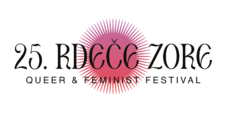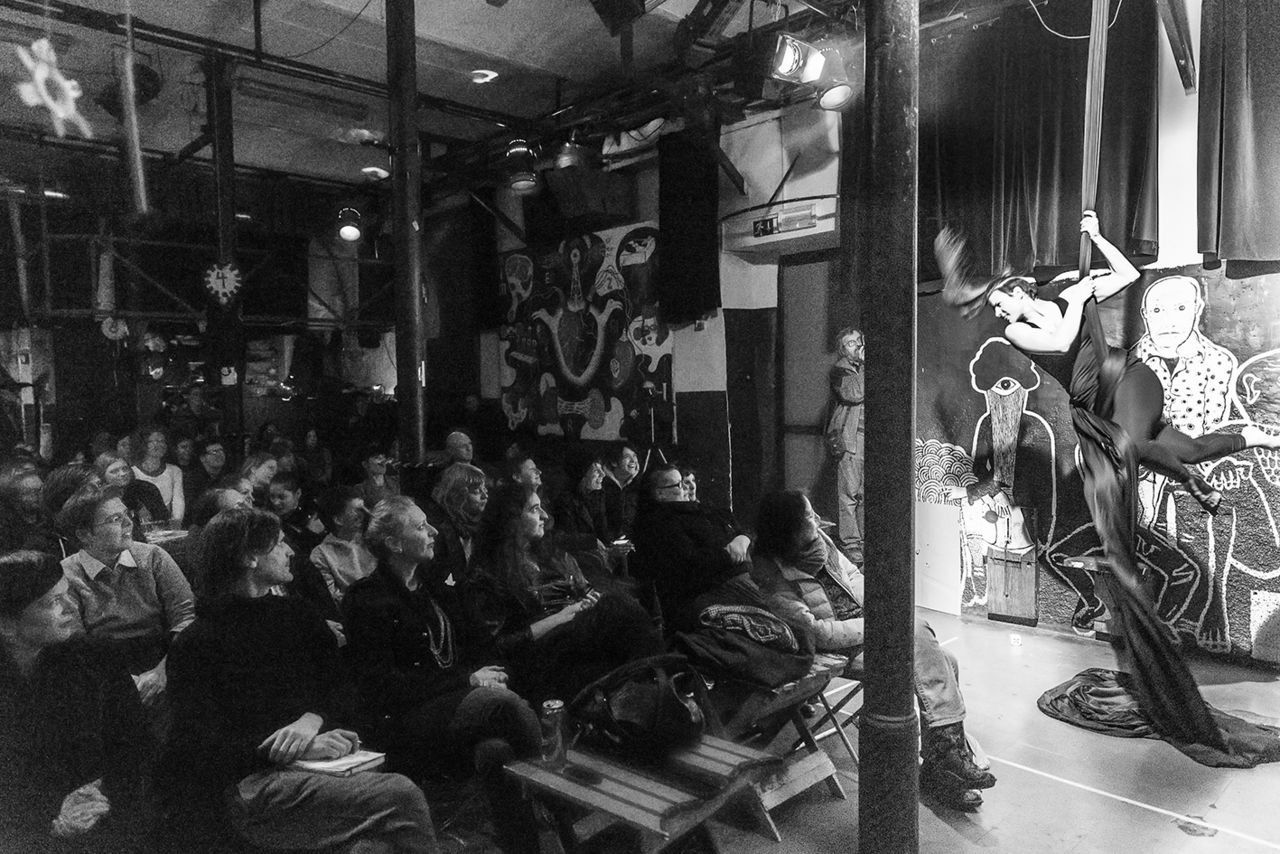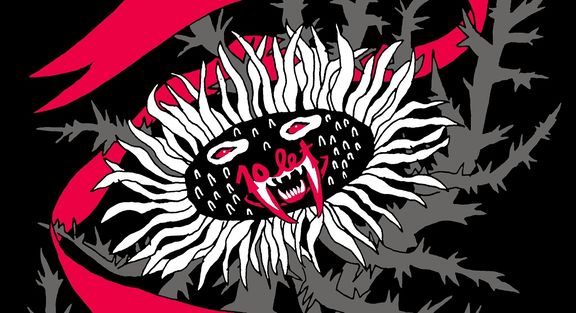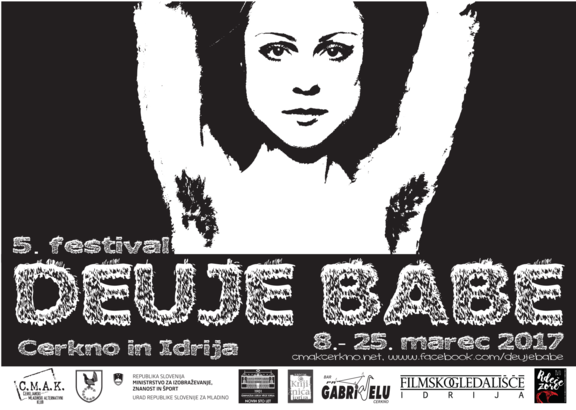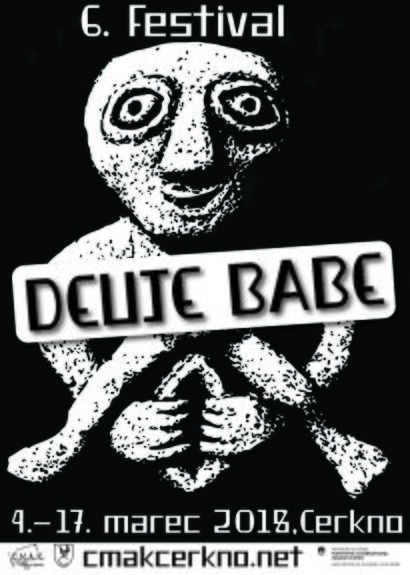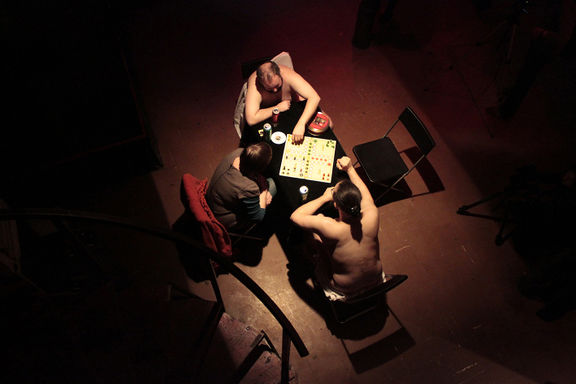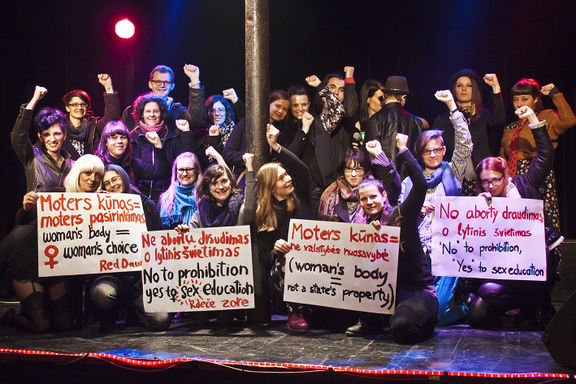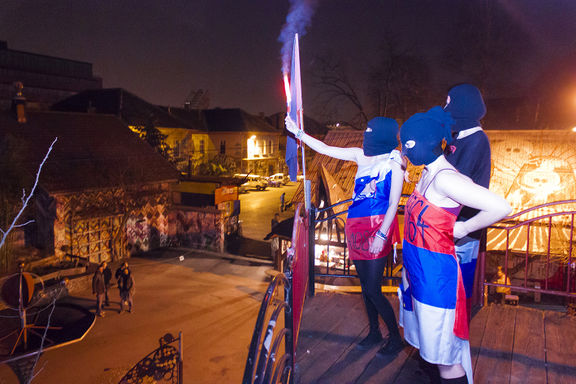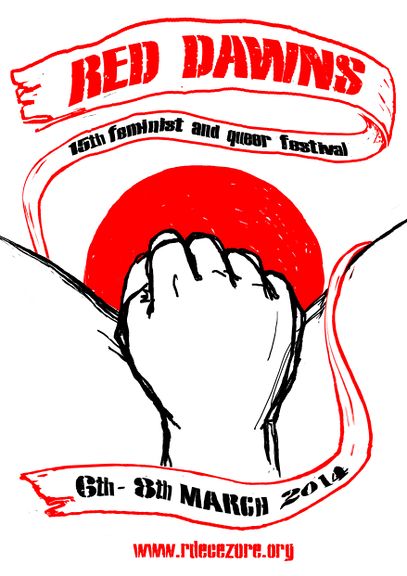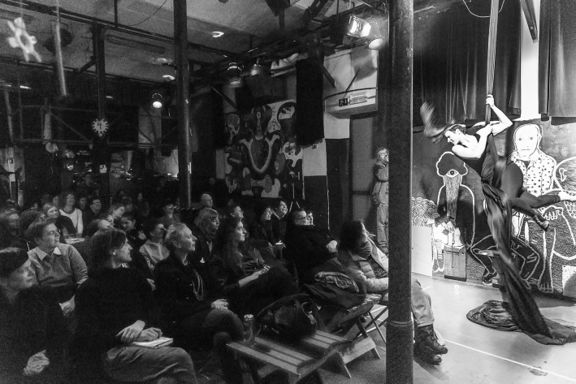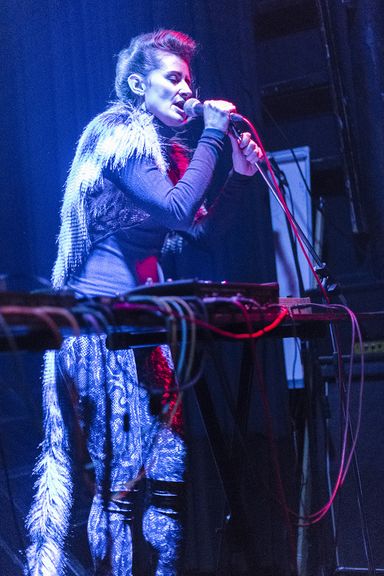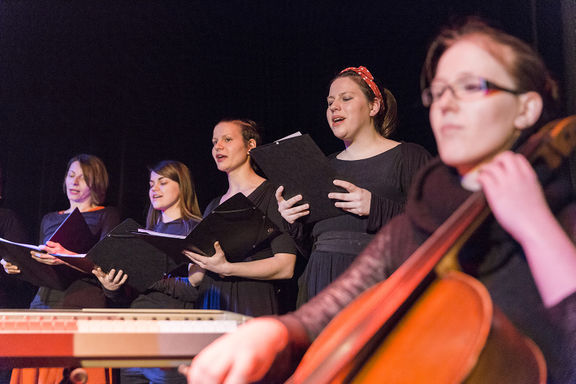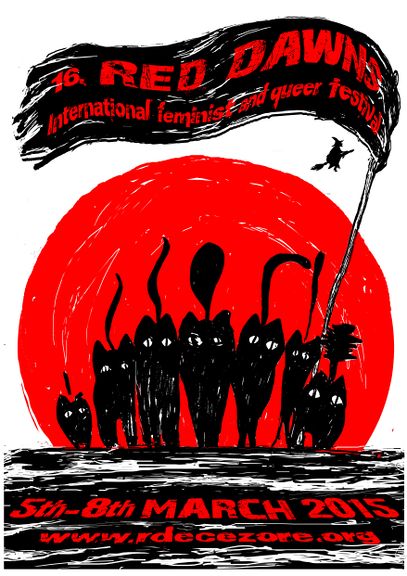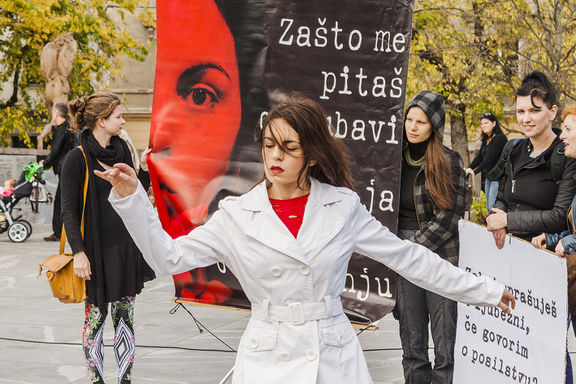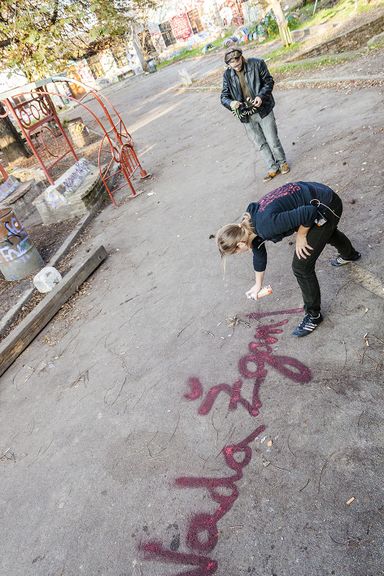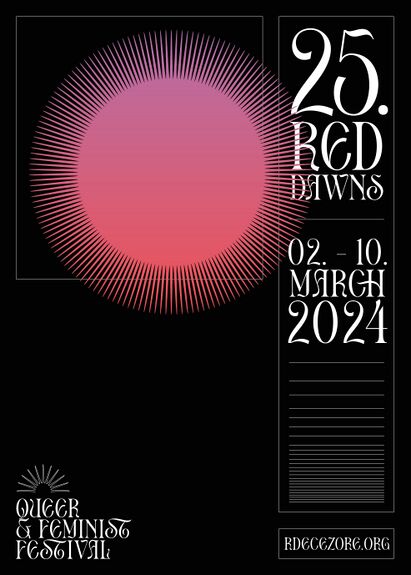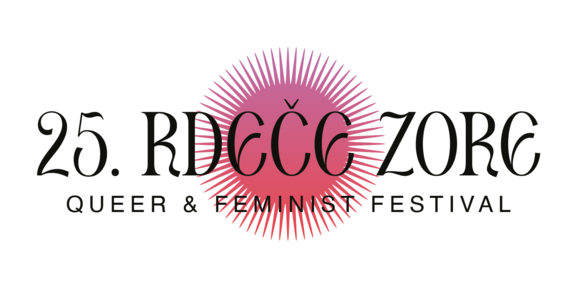Difference between revisions of "International Feminist and Queer Festival Red Dawns"
Anže Zorman (talk | contribs) |
|||
| (35 intermediate revisions by 7 users not shown) | |||
| Line 1: | Line 1: | ||
{{Article | {{Article | ||
| status = PHOTO | | status = PHOTO | ||
| − | | maintainer = | + | | maintainer = Urška Savič |
}} | }} | ||
| + | |||
{{Infobox | {{Infobox | ||
| name = International Feminist and Queer Festival Red Dawns | | name = International Feminist and Queer Festival Red Dawns | ||
| − | | localname = Rdeče zore, mednarodni feministični in queer festival | + | | localname = Rdeče zore, mednarodni feministični in queer festival |
| + | | logo = Rdece-zore-25-2024-logo.png | ||
| street = Masarykova 24 | | street = Masarykova 24 | ||
| town = SI-1000 Ljubljana | | town = SI-1000 Ljubljana | ||
| − | | telephone = | + | | telephone = |
| − | | fax = | + | | fax = |
| email = rdece.zore@gmail.com | | email = rdece.zore@gmail.com | ||
| website = http://www.rdecezore.org | | website = http://www.rdecezore.org | ||
| Line 16: | Line 18: | ||
| dates and duration = March, early, 3 days | | dates and duration = March, early, 3 days | ||
| duration weeks = 10 (2012) 10 (2013) 10 (2014) | | duration weeks = 10 (2012) 10 (2013) 10 (2014) | ||
| − | | festival dates = 5.3.2015 - 8.3.2015, 4.3.2016 - 8.3.2016 | + | | festival dates = 5.3.2015 - 8.3.2015, 4.3.2016 - 8.3.2016, 7.3.2017 - 11.3.2017, 7.3.2018 - 11.3.2018, 6.3.2019 - 10.3.2019, 5.3.2020 - 8.3.2020, 5.3.2021 - 11.3.2021, 4.3.2022 - 13.3.2022, 2.3.2023 - 12.3.2023, 2.3.2024 - 10.3.2024 |
| − | + | | accounts = | |
| − | |||
| − | |||
| − | |||
| − | |||
| − | |||
| − | |||
| − | |||
| − | |||
| − | |||
| − | |||
| − | |||
| − | | accounts= | ||
http://twitter.com/Red_Dawns | http://twitter.com/Red_Dawns | ||
| + | https://vimeo.com/album/210907 | ||
http://www.facebook.com/rdecezore | http://www.facebook.com/rdecezore | ||
| − | https:// | + | https://www.instagram.com/rdecezore/ |
| + | http://www.rdecezore.blogspot.com | ||
}} | }} | ||
| − | {{Teaser| | + | {{Teaser |
| − | Launched in [[established::2000]] by a small group of women – members of associations [[KUD Mreža Arts and Culture Association]], ŠKUC_LL, [[Klub Monokel|Monokel]] and | + | |
| + | | image = International Feminist and Queer Festival Red Dawns 2015 FEM TV 3.0.jpg | ||
| + | | | ||
| + | Launched in [[established::2000]] by a small group of women – members of associations [[KUD Mreža Arts and Culture Association]], ŠKUC_LL, [[Klub Monokel|Monokel]] and Kasandra Lesbian-Feminist Association (now defunct), the [[International Feminist and Queer Festival Red Dawns]] takes place annually at [[Metelkova mesto Autonomous Cultural Zone]] in Ljubljana. Since its very beginning some festival events were also held at other locations around the country. Red Dawns presents young Slovenian and international creators and activists whose work frames question the position of women and transgress gender roles and identities in the tangled mesh of art, culture, politics, activism and everyday life. | ||
| + | |||
| + | The festival features performances, concerts, exhibitions, urban interventions, as well as video projections, round tables, poetry readings, book presentations, and lectures. It hosts artists and activists whose work is subversively beautiful in their brave-hearted questioning of the supposed natural and social determinants of women's femininity and men's masculinity. | ||
| − | |||
}} | }} | ||
| + | == Background == | ||
| + | |||
| + | The festival was initiated by the questioning of the position of women in an inseparable intertwining of art, culture, politics, activism, and everyday life. Organizers who were active at [[Metelkova mesto Autonomous Cultural Zone|Metelkova mesto]] noticed that, like elsewhere, regardless of the autonomy of the space and its rebellious character claiming to be different from the rest of society, the working force that was keeping Metelkova alive and lively were women. The larger part of creative and organizational yet invisible work was done by them. They decided to create a women's festival revolving around March 8th, International Women’s Day, to celebrate women's lives and redefine public space in order to make it accessible for creativity and socializing of women on their own terms: in a non-hierarchical, non-exploitative, and anti-capitalistic manner. | ||
| − | + | The title and motto of the Red Dawns festival are taken from Kurt Held's 1941 novel "Die rote Zora und ihre Bande" (The Red Zora and Her Gang). The English translation of the book is titled "The Outsiders of Uskoken Castle" since the story is set at Uskok castle on the coast of Croatia. Kurt Held was a pseudonym of German writer Kurt Kläber, a political immigrant of the Nazi era who was exiled in Switzerland. During his visit to Croatia, he met a group of orphaned children that inspired his story of a group of war orphans who realize they can only defy social injustice by sticking together. | |
| − | |||
| + | The protagonist of the story is Zora, who had beautiful red hair, and her daringly witty, anarchist attitude inspired many struggles, including the militant feminist organization "Rote Zora" of West Germany, which stood against patriarchy, biotechnology, and nuclear power, among other things. "Rote Zora" chose this name because ''"until today it seems to be a male privilege to build gangs or to act outside the law. Yet particularly because girls and women are strangled by thousands of personal and political chains, this should make us masses of 'bandits' fighting for our freedom, our dignity, and our humanity. Law and order are fundamentally against us, even if we have hardly achieved any rights and have to fight for them daily. Radical women’s struggles and loyalty to the law - there is no way they go together!"'' "Zora" means "dawn" in the Slovenian language, therefore the name of the festival translates to English as Red Dawns. | ||
{{image|International Feminist and Queer Festival Red Dawns 2014 Metelkova.jpg}} | {{image|International Feminist and Queer Festival Red Dawns 2014 Metelkova.jpg}} | ||
| − | ==Overview== | + | == Overview == |
| − | Red Dawns annually invites women and queer artists who actively voice their visions, politics, opinions and feelings through any media. It supports women and | + | |
| + | Red Dawns annually invites women and queer artists who actively voice their visions, politics, opinions, and feelings through any media. It supports women and queer people who express their creativity in self-organized ways, capturing the do-it-yourself ethic of constructive rebellion against capitalist consumption. The festival's ideal ground is to unite the strength of women and queer activists as well as artists in order to demonstrate the possibility of a festival that is produced, organized, and performed by women and queers. | ||
| + | |||
| + | The festival is not driven by the search for finding "the essence" of Woman, since the feminist struggles of the past have proved that attempts at defining women by sex or even by common features of character are misleading. As they concern themselves with the reality of everyday hatred, disrespect and exploitation of women – and men. Festival Red Dawns does not advocate a further polarization of genders or “war of the sexes”. Instead, the creative expression and interaction of the participants of Red Dawns question the boundaries we take for granted; the isolating boundaries that separate people regardless of our gender. Despite the varying beliefs among the groups involved, many of them are supportive of Red Dawns' ongoing efforts because they recognize the importance of recognizing and valuing women's work. While not all participants identify with any specific feminist theory, they still support the festival's mission to uplift and celebrate the creative and activist work of women and queer individuals. | ||
| − | + | {{image|International Feminist and Queer Festival Red Dawns 2013 Mojca, ne jezi se performance.jpg}} | |
| − | + | == Programme == | |
| − | + | Each year the festival presents from 20 to 30 different events. The 2009 edition of the festival, for instance, featured the first exhibition of Slovene feminist art ''Women Are Coming'' [Ženske prihajajo], presenting Slovene feminist video, photography, and other visual art works, accompanied by performances by of artists such as Liad Kantorowitz (Israel/Palestine), Noa Reshef (Israel), and with concerts by the [[Kombinat Choir]] and Cherry Sunkist (Austria), etc. That same year Tea Hvala executed interviews with 17 (co)organisers of the festival as a part of a research study for her MA thesis in Gender Studies, entitled ''»When we Move, it’s a Movement«. Rdeče zore Festival as a Feminist-Queer Counterpublic.'' The theme is framed by the recent history of feminist, lesbian and queer organising in Ljubljana, within the contemporary current of transnational DIY grassroots feminism in the postsocialist frame. In Ljubljana, the full version can be borrowed from Elf’s Reading Room (Trg prekomorskih brigad 1) or the Lesbian Library (Metelkova 6). In 2010, academic journal Monitor ISH published a shorter (100 page) version in issue XII/1. The electronic version in PDF can be read or downloaded from [https://www.dlib.si/details/URN:NBN:SI:DOC-5UPFXV0N here]. | |
The festival also organises intriguing workshops, such as a DIY workshop of clothes recycling, a workshop on Internet security and privacy, a workshop on preventing burn-out, a workshop on DIY sex toys, etc. | The festival also organises intriguing workshops, such as a DIY workshop of clothes recycling, a workshop on Internet security and privacy, a workshop on preventing burn-out, a workshop on DIY sex toys, etc. | ||
| + | {{image|Red Dawn above the City of Women 2013 Ana Cigon's performance.jpg}} | ||
== Bodeča Neža Award == | == Bodeča Neža Award == | ||
| − | The Bodeča Neža (Barbed Flower) | + | The Bodeča Neža (Barbed Flower) is a anti-award that points out sexist statements of public persons, which are usually neither reflected upon nor criticized. The first Barbed Flower anti-award was bestowed on 8 March 2013. Since 2015, the Red Dawns cooperates with the web portal spol.si in the making and bestowing of the Barbed Flower Award. |
| + | |||
| + | Stereotypical beliefs about women's place in society are often reflected in the language used in public space by those responsible for creating an open and tolerant society. These statements, made spontaneously in public spaces, sometimes consciously and sometimes with good intentions, often reproduce the patriarchal structures of everyday life. Although the Barbed Flower anti-prize is only awarded once a year, it draws attention to the everyday presence of sexist language in society. Despite legal commitments to equality on paper, the reality is often quite different. | ||
| + | |||
| + | {{image|Bodeca neza 10let.jpeg}} | ||
| + | |||
| + | == Partners == | ||
| − | + | The first edition of the Red Dawns festival presented artists and activists working at the [[Metelkova mesto Autonomous Cultural Zone]]. In 2001 the festival already joined up with political allies from the Balkans and Central European neighbourhood. The Red Dawns was supported also by the ACU, Utrecht (2005), Mama Cash (2005), XminY (2008) and the Global Fund for Women (2008), it is partially cofunded by the [[Ministry of Culture]] and the [[Municipality of Ljubljana]] as a part of the programme of [[KUD Mreža Arts and Culture Association]]. In 2021 the project was also co-funded by the European Union in scope of ERASMUS+ programme. | |
| − | + | A few cultural centres round Slovenia, e.g. [[MC Podlaga, Sežana|MC Podlaga]] (Sežana), [[Pekarna Magdalena Network]] (Maribor), [[C.M.A.K. Cerkno]] and [[Mostovna Cultural Centre]] (Nova Gorica) widened the circle of contributors. There is also a partner festival called [[Deuje babe Festival]], organised since 2013 in the Cerkljansko region, co-produced by [[C.M.A.K. Cerkno]]. | |
| − | + | Many individuals initiatives and other associations have joined and supported the Red Dawns, among them [[Alkatraz Gallery]], [[KUD Anarhiv]], [[Radio Študent]], DZAC, [[CrossConversationCut]], kamera REVOLTA, Cinema iNVISIBLE, the feminist debate club of the [[Faculty of Social Sciences, University of Ljubljana]], [[Klub Gromka]], [[MKC Koper Youth and Culture Centre]], [[MIKK Youth Information Cultural Club, Murska Sobota]], [[Klub Menza pri koritu]], the ŠKUC - Cultural Centre Q, Lesbian-Feminist University, [A][[Infoshop Metelkova]], [[Klub SOT 24,5]], [[SCCA-Ljubljana Centre for Contemporary Arts]], GRRRLS Kulturverein Graz, [[C.M.A.K. Cerkno]], Zaklada ''Kultura nova'' Zagreb, Deep Green Resistance Slovenija, Vstajniške socialne delavke, KUD Transformator, VE-ZA Collective, [[Delavski dom Trbovlje Cultural Centre]], [[Gulag Institute for Contemporary Arts and Cultures]], [[Cyberpipe]], [[Ljudmila Art and Science Laboratory]], ZadrugeFemale’s’Cream, Mizzart gallery, Café Open, [[Museum of Contemporary Art Metelkova (MSUM)]], Red Min(e)d, [[Workers' Punk University]] ([[Peace Institute - Institute for Contemporary Social and Political Studies]]), Serbian Cultural Center Danilo Kiš, [[Institutum Studiorum Humanitatis (ISH)]], Spol.si web portal, etc. | |
{{image|International Feminist and Queer Festival Red Dawns 2014 Crew.jpg}} | {{image|International Feminist and Queer Festival Red Dawns 2014 Crew.jpg}} | ||
| Line 83: | Line 92: | ||
*[http://www.uzbuna.org/en/journal/conversations-new-feminisam-and-art/queer-and-feminism-social-rights-women ''From Queer and Feminism to the Social Rights of Women'', a conversation between Lidija Radojević and Tea Hvala] | *[http://www.uzbuna.org/en/journal/conversations-new-feminisam-and-art/queer-and-feminism-social-rights-women ''From Queer and Feminism to the Social Rights of Women'', a conversation between Lidija Radojević and Tea Hvala] | ||
*[http://rdecezore.blogspot.com/2011/06/book-about-red-dawns-festival-just.html ''Rdečke razsajajo!'' book with interviews with the Red Dawns Festival organisers] (2010, excerpts in English) | *[http://rdecezore.blogspot.com/2011/06/book-about-red-dawns-festival-just.html ''Rdečke razsajajo!'' book with interviews with the Red Dawns Festival organisers] (2010, excerpts in English) | ||
| + | *[https://www.dlib.si/details/URN:NBN:SI:DOC-5UPFXV0N The Red Dawns Festival as a feminist-queer counterpublic, Tea Hvala's article from Monitor ISH] | ||
{{gallery}} | {{gallery}} | ||
Latest revision as of 10:08, 28 February 2024
Background
The festival was initiated by the questioning of the position of women in an inseparable intertwining of art, culture, politics, activism, and everyday life. Organizers who were active at Metelkova mesto noticed that, like elsewhere, regardless of the autonomy of the space and its rebellious character claiming to be different from the rest of society, the working force that was keeping Metelkova alive and lively were women. The larger part of creative and organizational yet invisible work was done by them. They decided to create a women's festival revolving around March 8th, International Women’s Day, to celebrate women's lives and redefine public space in order to make it accessible for creativity and socializing of women on their own terms: in a non-hierarchical, non-exploitative, and anti-capitalistic manner.
The title and motto of the Red Dawns festival are taken from Kurt Held's 1941 novel "Die rote Zora und ihre Bande" (The Red Zora and Her Gang). The English translation of the book is titled "The Outsiders of Uskoken Castle" since the story is set at Uskok castle on the coast of Croatia. Kurt Held was a pseudonym of German writer Kurt Kläber, a political immigrant of the Nazi era who was exiled in Switzerland. During his visit to Croatia, he met a group of orphaned children that inspired his story of a group of war orphans who realize they can only defy social injustice by sticking together.
The protagonist of the story is Zora, who had beautiful red hair, and her daringly witty, anarchist attitude inspired many struggles, including the militant feminist organization "Rote Zora" of West Germany, which stood against patriarchy, biotechnology, and nuclear power, among other things. "Rote Zora" chose this name because "until today it seems to be a male privilege to build gangs or to act outside the law. Yet particularly because girls and women are strangled by thousands of personal and political chains, this should make us masses of 'bandits' fighting for our freedom, our dignity, and our humanity. Law and order are fundamentally against us, even if we have hardly achieved any rights and have to fight for them daily. Radical women’s struggles and loyalty to the law - there is no way they go together!" "Zora" means "dawn" in the Slovenian language, therefore the name of the festival translates to English as Red Dawns.
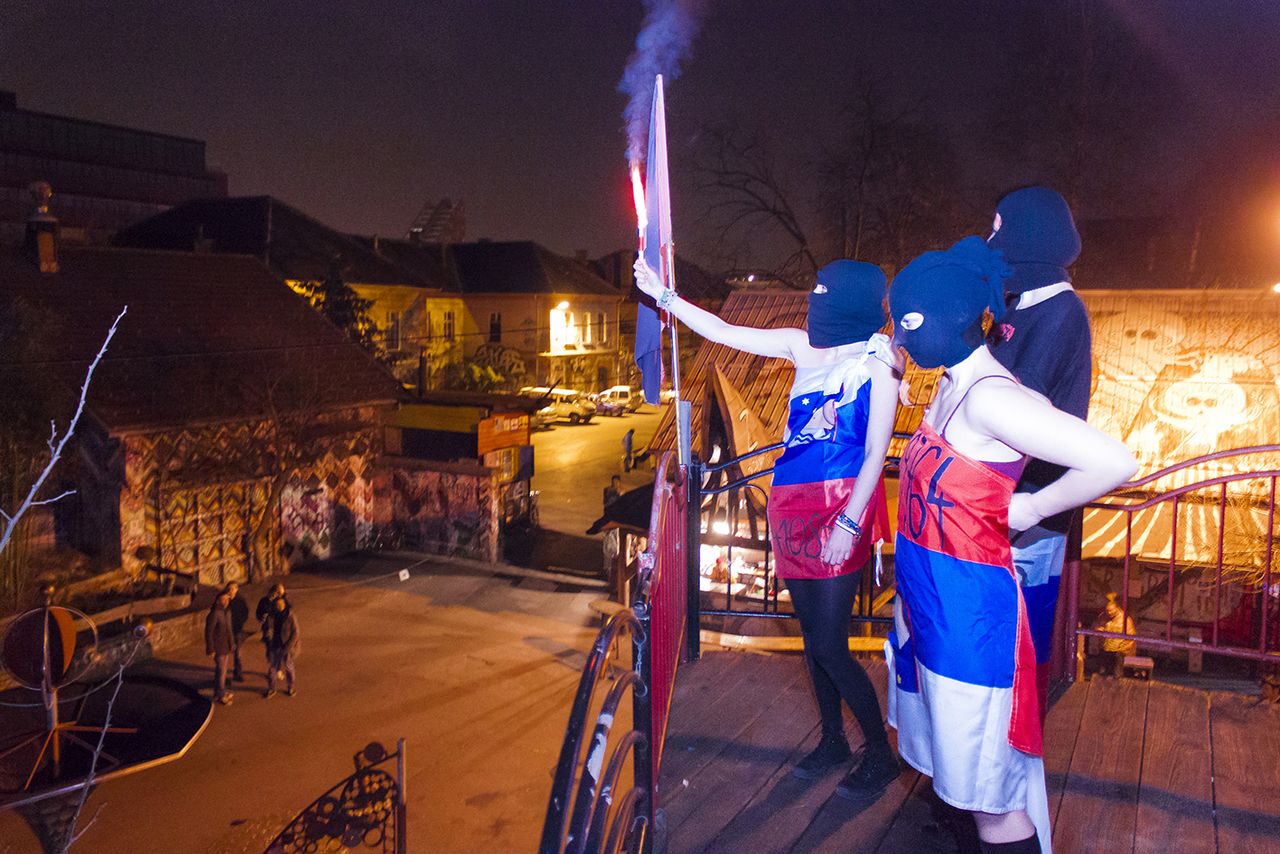 The Revolting Women Social Workers present their calendar I Want My Part Of The History! at the Metelkova mesto Autonomous Cultural Zone, A - Infoshop, in the scope of the International Feminist and Queer Festival Red Dawns in 2014
The Revolting Women Social Workers present their calendar I Want My Part Of The History! at the Metelkova mesto Autonomous Cultural Zone, A - Infoshop, in the scope of the International Feminist and Queer Festival Red Dawns in 2014
Overview
Red Dawns annually invites women and queer artists who actively voice their visions, politics, opinions, and feelings through any media. It supports women and queer people who express their creativity in self-organized ways, capturing the do-it-yourself ethic of constructive rebellion against capitalist consumption. The festival's ideal ground is to unite the strength of women and queer activists as well as artists in order to demonstrate the possibility of a festival that is produced, organized, and performed by women and queers.
The festival is not driven by the search for finding "the essence" of Woman, since the feminist struggles of the past have proved that attempts at defining women by sex or even by common features of character are misleading. As they concern themselves with the reality of everyday hatred, disrespect and exploitation of women – and men. Festival Red Dawns does not advocate a further polarization of genders or “war of the sexes”. Instead, the creative expression and interaction of the participants of Red Dawns question the boundaries we take for granted; the isolating boundaries that separate people regardless of our gender. Despite the varying beliefs among the groups involved, many of them are supportive of Red Dawns' ongoing efforts because they recognize the importance of recognizing and valuing women's work. While not all participants identify with any specific feminist theory, they still support the festival's mission to uplift and celebrate the creative and activist work of women and queer individuals.
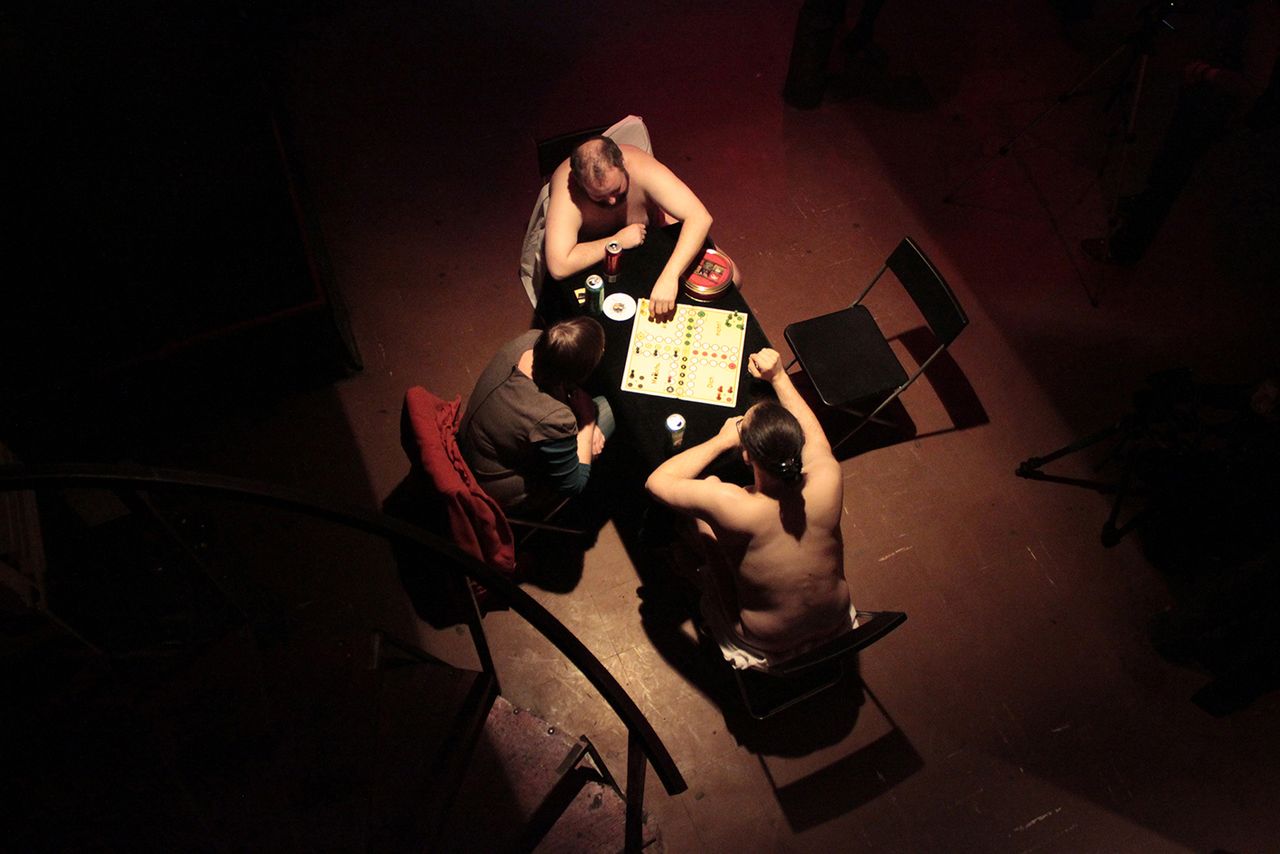 Mojca, don't get irritated (Ludo) performance by Petja Grafenauer, Simon Macuh and Zoran Srdić Janežič) at the International Feminist and Queer Festival Red Dawns 2013.
Mojca, don't get irritated (Ludo) performance by Petja Grafenauer, Simon Macuh and Zoran Srdić Janežič) at the International Feminist and Queer Festival Red Dawns 2013.
Programme
Each year the festival presents from 20 to 30 different events. The 2009 edition of the festival, for instance, featured the first exhibition of Slovene feminist art Women Are Coming [Ženske prihajajo], presenting Slovene feminist video, photography, and other visual art works, accompanied by performances by of artists such as Liad Kantorowitz (Israel/Palestine), Noa Reshef (Israel), and with concerts by the Kombinat Choir and Cherry Sunkist (Austria), etc. That same year Tea Hvala executed interviews with 17 (co)organisers of the festival as a part of a research study for her MA thesis in Gender Studies, entitled »When we Move, it’s a Movement«. Rdeče zore Festival as a Feminist-Queer Counterpublic. The theme is framed by the recent history of feminist, lesbian and queer organising in Ljubljana, within the contemporary current of transnational DIY grassroots feminism in the postsocialist frame. In Ljubljana, the full version can be borrowed from Elf’s Reading Room (Trg prekomorskih brigad 1) or the Lesbian Library (Metelkova 6). In 2010, academic journal Monitor ISH published a shorter (100 page) version in issue XII/1. The electronic version in PDF can be read or downloaded from here.
The festival also organises intriguing workshops, such as a DIY workshop of clothes recycling, a workshop on Internet security and privacy, a workshop on preventing burn-out, a workshop on DIY sex toys, etc.
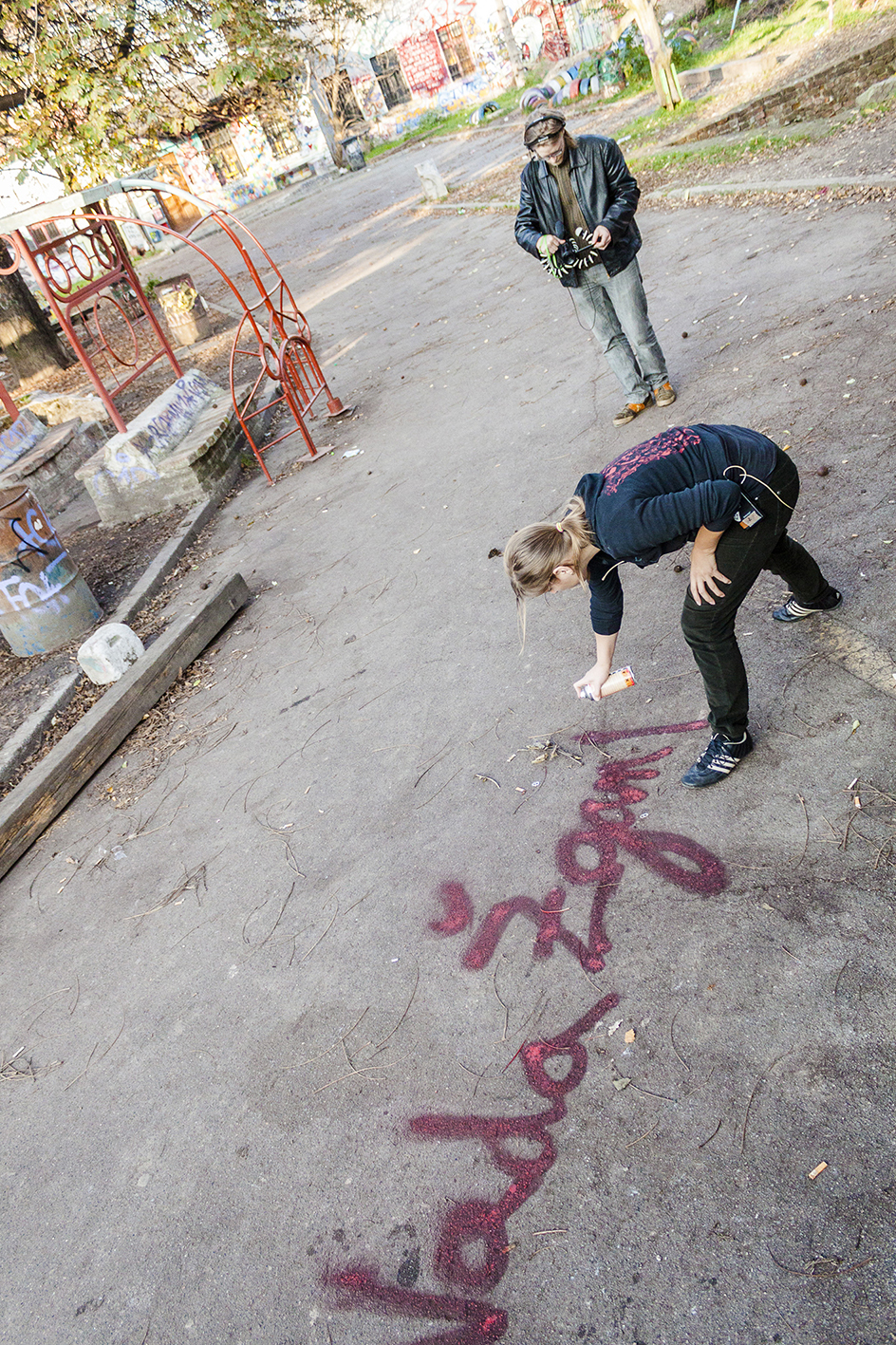 Ana Čigon's performance Thank you, dear Ladies at the October special festival edition Red Dawn above the City of Women in 2013
Ana Čigon's performance Thank you, dear Ladies at the October special festival edition Red Dawn above the City of Women in 2013
Bodeča Neža Award
The Bodeča Neža (Barbed Flower) is a anti-award that points out sexist statements of public persons, which are usually neither reflected upon nor criticized. The first Barbed Flower anti-award was bestowed on 8 March 2013. Since 2015, the Red Dawns cooperates with the web portal spol.si in the making and bestowing of the Barbed Flower Award.
Stereotypical beliefs about women's place in society are often reflected in the language used in public space by those responsible for creating an open and tolerant society. These statements, made spontaneously in public spaces, sometimes consciously and sometimes with good intentions, often reproduce the patriarchal structures of everyday life. Although the Barbed Flower anti-prize is only awarded once a year, it draws attention to the everyday presence of sexist language in society. Despite legal commitments to equality on paper, the reality is often quite different.
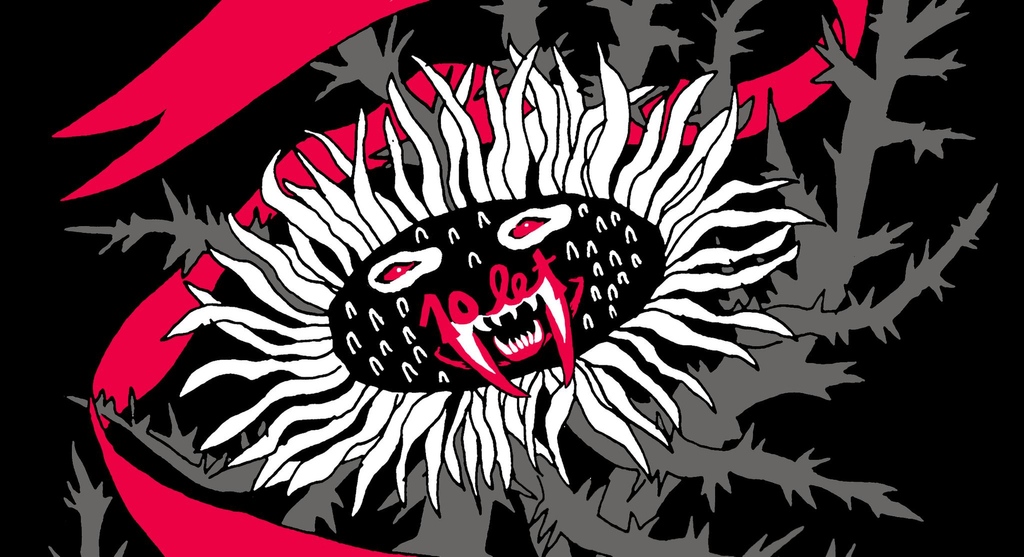 Poster for ten years anniversary of anti-award Barbed Flower (Bodeča Neža) of International Feminist and Queer Festival Red Dawns
Poster for ten years anniversary of anti-award Barbed Flower (Bodeča Neža) of International Feminist and Queer Festival Red Dawns
Partners
The first edition of the Red Dawns festival presented artists and activists working at the Metelkova mesto Autonomous Cultural Zone. In 2001 the festival already joined up with political allies from the Balkans and Central European neighbourhood. The Red Dawns was supported also by the ACU, Utrecht (2005), Mama Cash (2005), XminY (2008) and the Global Fund for Women (2008), it is partially cofunded by the Ministry of Culture and the Municipality of Ljubljana as a part of the programme of KUD Mreža Arts and Culture Association. In 2021 the project was also co-funded by the European Union in scope of ERASMUS+ programme.
A few cultural centres round Slovenia, e.g. MC Podlaga (Sežana), Pekarna Magdalena Network (Maribor), C.M.A.K. Cerkno and Mostovna Cultural Centre (Nova Gorica) widened the circle of contributors. There is also a partner festival called Deuje babe Festival, organised since 2013 in the Cerkljansko region, co-produced by C.M.A.K. Cerkno.
Many individuals initiatives and other associations have joined and supported the Red Dawns, among them Alkatraz Gallery, KUD Anarhiv, Radio Študent, DZAC, CrossConversationCut, kamera REVOLTA, Cinema iNVISIBLE, the feminist debate club of the Faculty of Social Sciences, University of Ljubljana, Klub Gromka, MKC Koper Youth and Culture Centre, MIKK Youth Information Cultural Club, Murska Sobota, Klub Menza pri koritu, the ŠKUC - Cultural Centre Q, Lesbian-Feminist University, [A]Infoshop Metelkova, Klub SOT 24,5, SCCA-Ljubljana Centre for Contemporary Arts, GRRRLS Kulturverein Graz, C.M.A.K. Cerkno, Zaklada Kultura nova Zagreb, Deep Green Resistance Slovenija, Vstajniške socialne delavke, KUD Transformator, VE-ZA Collective, Delavski dom Trbovlje Cultural Centre, Gulag Institute for Contemporary Arts and Cultures, Cyberpipe, Ljudmila Art and Science Laboratory, ZadrugeFemale’s’Cream, Mizzart gallery, Café Open, Museum of Contemporary Art Metelkova (MSUM), Red Min(e)d, Workers' Punk University (Peace Institute - Institute for Contemporary Social and Political Studies), Serbian Cultural Center Danilo Kiš, Institutum Studiorum Humanitatis (ISH), Spol.si web portal, etc.
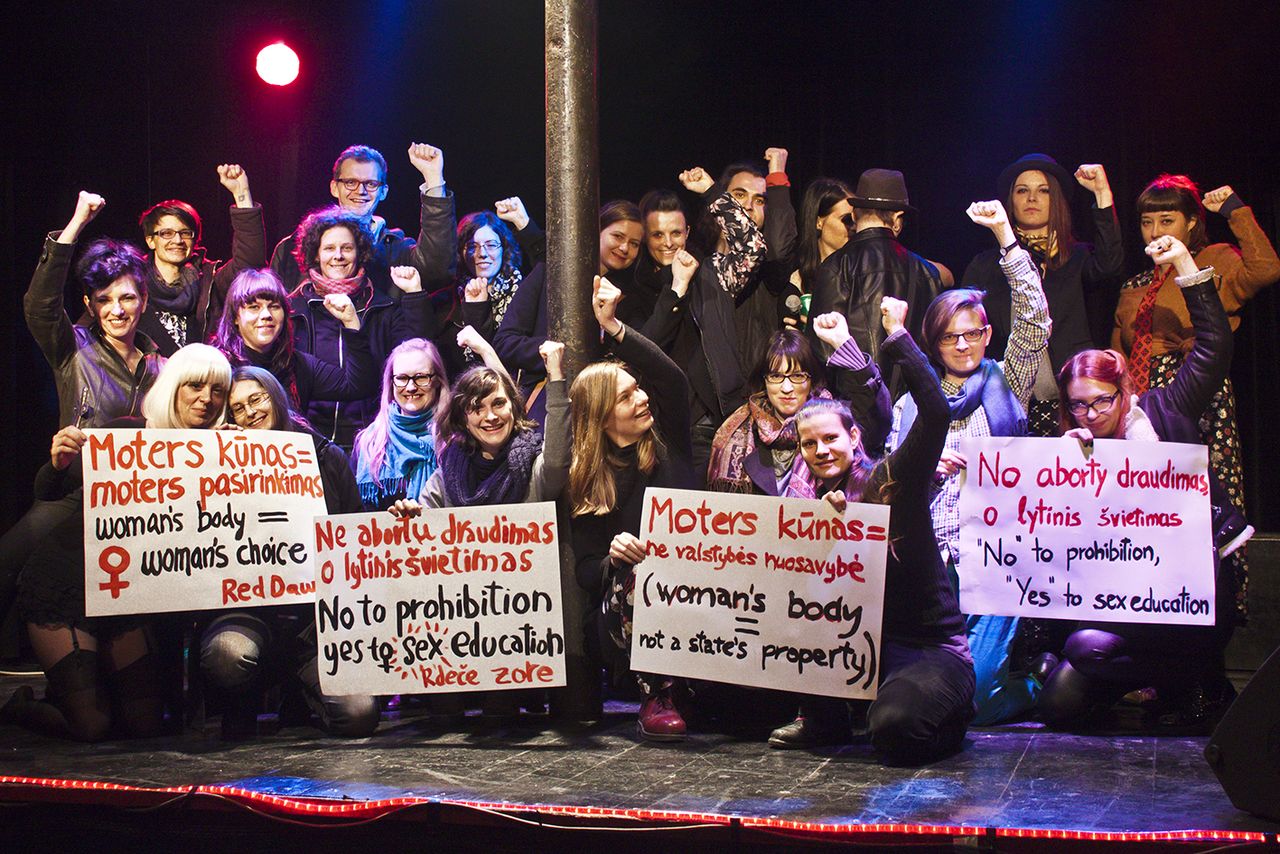 The crew of the International Feminist and Queer Festival Red Dawns in 2014
The crew of the International Feminist and Queer Festival Red Dawns in 2014
See also
- KUD Mreža Arts and Culture Association
- Metelkova mesto Autonomous Cultural Zone
- City of Women International Festival of Contemporary Arts
- Deuje babe Festival
External links
- Red Dawns International Festival website
- Red Dawns blog
- From Queer and Feminism to the Social Rights of Women, a conversation between Lidija Radojević and Tea Hvala
- Rdečke razsajajo! book with interviews with the Red Dawns Festival organisers (2010, excerpts in English)
- The Red Dawns Festival as a feminist-queer counterpublic, Tea Hvala's article from Monitor ISH



